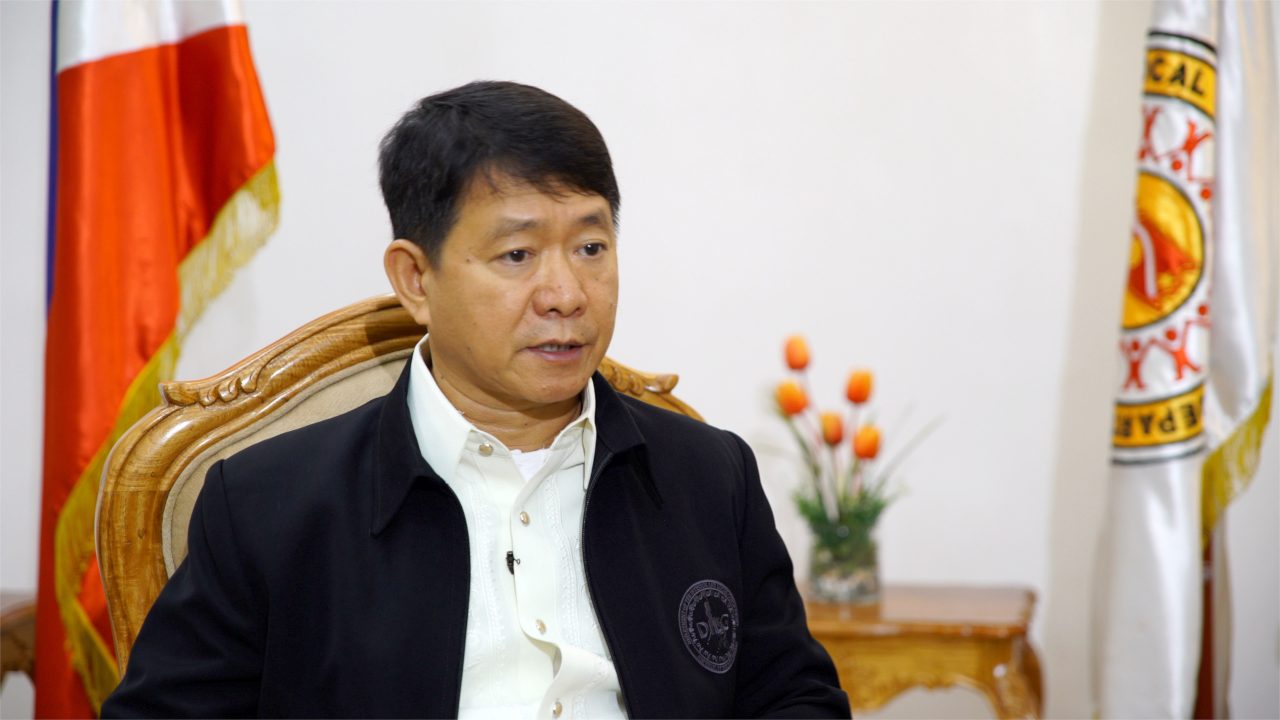SUMMARY
This is AI generated summarization, which may have errors. For context, always refer to the full article.


MANILA, Philippines – President Rodrigo Duterte has authorized Interior Secretary Eduardo Año to name persons to certain local elective posts held by officials who are temporarily unable to fulfill their duties.
Duterte signed Administrative Order No. 15 on Thursday, December 13, laying down rules for when local government chiefs, their vice, and members of the provincial, city, municipal, or barangay councils are “temporarily incapacitated.”
Reasons for this temporary incapacitation may be a leave of absence, travel abroad, or suspension from office, reads AO 15.
The Interior Secretary, in this case Eduardo Año, is given powers to designate such persons who will temporarily take over the posts, specifically the posts of vice governor, vice mayor, members of sanggunians or councils, and other vacancies.
Temporary vacancies for local chief executives. If the governor, city or municipal mayor or barangay captain can’t perform their duties, the vice governor, vice mayor, and the highest-ranking sangguniang barangay member, respectively, will “automatically” exercise their powers and perform their duties.
However, they will not have the powers to “appoint, suspend or dismiss employees.” They will only have these powers if the elected official they are filling in for is incapacitated for a period exceeding 30 days.
Temporary vacancies for vice governor and vice mayor. The highest-ranking council member will be designated to the post by the President through the Interior Secretary or the DILG officer-in-charge (OIC-DILG). If the highest-ranking member is also incapable of filling the post, the post will be given to the second highest-ranking council member.
Temporary vacancies in the sanggunian. On the provincial, city, town, and barangay level, the council vacancies shall be filled in by a person designated by the President through the Interior Secretary or OIC-DILG
But the AO sets down rules for this. For all such vacancies, except in the barangay council, the person to fill in the post must come from the same political party as the incapacitated coucil member.
If the council member did not have any political party, it’s up to the President, through the SILG or OIC-DILG to designated a “qualified person” and only “upon the recommendation of the sanggunian concerned, if still constituting a quorum.”
The same thing goes for vacancies in the sangguniang barangay.
For vacancies in youth representatives to the sanggunian, the official next in rank in the organization concerned shall be designated to the post by the President, through the SILG or OIC-DILG.
Other temporary vacancies. If the modes of succession detailed by the AO are “inapplicable” or there remain vacancies in other local elective positions which may “hamper the operations” of the LGU, the President, through the SILG or OIC-DILG, may appoint or designate a qualified person.
Caretaker. While the processes on filling the local government vacancies have not yet been completed, the current LGU officials are put in charge of the LGU’s day-to-day operations. However, if there are no such officials, the DILG chief is “authorized to designate a cartetaker.”
Limits to powers of temporary officials. The AO also limits the powers of the officials temporarily filling in. They cannot do the following:
- Appoint, suspend, or dismiss LGU officials and employees
- Create or fill up positions whether regular, contractual, or casual
- Reorganize local government offices
- Revise duly approved local development plans
Approve contracts “other than those needed to keep the day-to-day operations going”
However, the AO cites an exception. The SILG may allow the temporary official to approve contracts, including contracts of service, “when public interest so requires and when necessary to prevent disruption in the delivery of service.” – Rappler.com
Add a comment
How does this make you feel?
There are no comments yet. Add your comment to start the conversation.